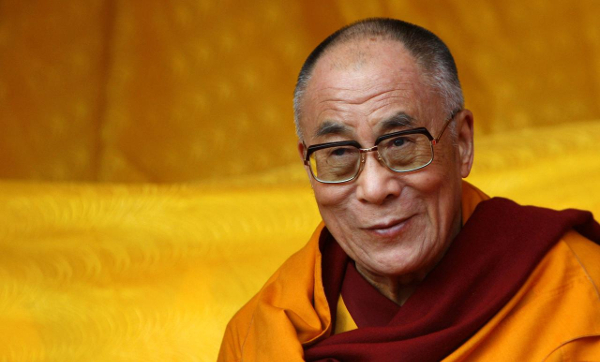Una: Tibetan spiritual leader Dalai Lama has said that “he is a refugee in India” while adding that he enjoys freedom here. The Tibetan leader in exile made the statement while speaking to reporters in Himachal Pradesh’s Una.
“We already enjoyed freedom while living in India for over sixty years. In one way, I’m a refugee but I enjoy India’s freedom,” he was quoted as saying by news agency ANI.
Asked about freedom of Tibet, Dalai Lama said that it’s better to approach the Chinese in this regard and recalled former prime minister Pandit Jawahar Lal Nehru’s advise.
“Tibetan freedom…since 1974…before that, we appealed to the UN. Pandit Nehru advised that the United Nations cannot do much. Sooner or later, much better to approach the Chinese and talk to them,” he said.
“In ’74, we decided to not seek independence. Try to remain…while we remain within the People’s Republic of China, we should have certain rights for the preservation of our own culture,” he added.
The Tibetan leader further said they can teach the Chinese how to practice democracy.
“Since 2001, I completely retired. The elected political leadership carries all these responsibilities. I think eventually we can teach Chinese how to practice democracy,” he said.
Earlier this month, the Tibetan government-in-exile had reportedly passed a resolution reaffirming that the successor of Dalai Lama will be chosen by the spiritual leader himself and no nation has locus standi on the issue.
Dalai Lama came to India during the 1959 Tibetan uprising and has since been living in Dharamsala, Himachal Pradesh.
The 82-year-old spiritual leader, who received the Nobel Peace Prize in 1989, shares his thoughts on several issues pertaining to Tibetans, environment, economics, women’s rights, non-violence, interfaith dialogue, along with various topics of Mahayana and Vajrayana Buddhist teachings.
His supporters operate a government-in-exile in Dharamshala which is often referred to as “Little Lhasa”.
Source: TNN
Image Courtesy: Reuters
You may also like
-
Beware! Chinese Hackers are Using VLC Media Player to Spy on You
-
Israel Participates in US Mideast Naval Exercise wih Saudi Arabia and Oman – IMX 22
-
Pakistani Establishment Controlling ‘Family Business’ of Selling Kashmir Narrative, Uses Issue as Survival Strategy: Report
-
After Suspending Twitter ‘Indefinitely’, Nigerian Govt Joins Made-In-India Microblogging Platform ‘Koo’
-
Pam Gosal, First Indian-Origin Woman to be Scottish Lawmaker
